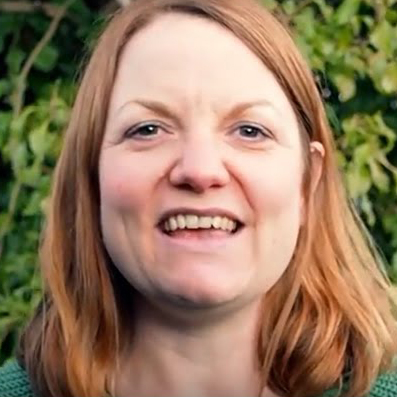
22 February 2024
When Sheela Hobden, a coach, supervisor and workplace wellbeing and resilience practitioner, got involved in research, it had a lasting impact – ‘not just on my coaching practice, but on who I am in this world’. Here she shares what she has learned by becoming involved in research, and how research can expand coaching practice.
Have you ever had a conversation with someone where you are left with your jaw aching because you have been smiling so much? It was how I left my first interaction with Dr Tünde Erdös back in 2018, as she was engaging me on her research project. Something happened that day. The passion for investigation and building evidence for coaching practice seemed to have been injected into me.
Taking part in her research into presence was incredibly eye-opening. It was not just the evidence around non-verbal synchrony, and the links to working alliance, goal attainment, and self-regulation in the coaching process. It impacted me – and not just my coaching practice, but who I am in this world.
Three years later, I was eager to embark on more research. I remembered it brought me growth, connections, and new clients. So, I reached out to Tünde to find out what else I could get involved in. That conversation was another precious moment, and now I find myself three years into my own research project – see what I mean about how she managed to inspire me into research again?
No one has yet said I made their jaw ache, though I do feel people’s enthusiasm about how I energise them in this research space. It is not in my nature to contain any buzz about things, so here I hope to spread the word, and raise awareness of the opportunities coaches have to participate in research.
That eagerness can mean I get carried away. My study is looking at the impact of coaching on wellbeing. I have lost count of the number of times I have paused to say to myself, ‘you absolutely cannot burn out running a research project on wellbeing’. It really is the challenge of a lifetime – and I do like a challenge – but I have to pace myself.
Here are some of the lessons I have learnt so far
- Do your research (oh the irony!)
- Be patient
- Trust the process
There are so many different types and methods of research. It could involve two people; it could be thousands. It might take the form of surveys, observations or focus groups. I am only naming a few possibilities here, because it would actually take years of study to name them all, and that’s before you start with what each of them entails.
The lesson I learnt was how influenced I was in terms of project design by the project I had participated in. It shaped my design and made it big, which is how I landed the opportunity (and challenge) of a lifetime. This impacted me and my time, but also the recruitment of participants – I was asking people to engage for a whole year. So next time, I might consider something smaller, shorter, and more focused on detail. Note: I am already talking about next time, and I am not even done yet.
My patience developed as I learnt how long it would take to recruit participants. The initial timeline had all the coaches starting within three months, but the reality was 12 months. This was with the support of ICF, EMCC and AC sharing with their networks.
In learning to trust the process, I found that, while there are so many constraints to make sure research is reliable and valid, there are also many shades of grey along the way. There is a kind of subliminal process that you have to keep very tight, while also relaxing into the nature of the humans who participate in it.
These are all useful lessons for coaching, too. I learnt about how to conduct research, and I learnt from my findings, but I also developed my coaching practice.
Type of research = type of coaching
When I think about how much more time I could have spent exploring the different research methods, it piqued my interest to think about the vast range of coaching styles and techniques. Taking part in the research and leading my own has exposed me to a wider variety of styles, thus advancing my own coaching practice.
Be patient = presence with the client – trusting they will find their ‘answer’
I honestly have a lot of work to do when it comes to patience. As you have read, my eagerness carries me away. In the supervision of this project, and in my coaching supervision, this comes up a lot. It took time to get the design right. It took time to coordinate the professional bodies to promote the research. I really did have to sit back and trust that things would happen. This reflection, when applied to the coaching process, provoked me to think about trust and presence with our coaching clients. Holding back because we know their ‘answer’ will come.
Trust the process = trust your client
This last point is interesting, because where does any process come from? I would say it comes from years of experimenting and refining. In research methods, this is definitely the case. So, where does the coaching process come from? It can only come from research, so when you catch yourself saying, ‘trust the process’, do pause to ask that question, ‘where does the process of coaching come from?’ You will likely have honed your own through years of experience, but where else do you get your evidence from as you continue to coach? How research-informed are your operating practices?
What makes this so important?
Coaching is a reasonably young profession, built on a limited data set. It is not enough for people to say ‘that was good’, or ‘that helped’. We need to increase research to build evidence for the sustainability of the profession. As the world evolves, we need to evolve with it. Consider recent research into AI, or workplace equality, for example.
Coaching can be a lonely profession. Coaches may share their reflections with each other, but to what extent does this lead to industry–wide change? Much organisational learning occurs through sharing, observing and collaborating, and without it, we will keep doing the same thing, while other tools and techniques progress and emerge.
Why would you get involved?
Consider the following questions:
- How do you know you are using the latest, most effective techniques?
- How do you build your professional learning network?
Coaches love working with other coaches, and the research community is such a great place for sharing and collaboration. Being part of a research project will support your own professional development. Many projects are approved for CPD hours, as part of the debrief. In addition, your participation in research will give you a solid platform from which to engage clients, enabling you to talk from a position of knowledge about evidence to which you directly contributed.
How can you get involved?
There is a huge range of research projects going on all the time, and they need practising coaches to participate. You can get involved in a whole spectrum of methods, from a short questionnaire to full involvement of actual coaching practice. You can find ongoing research opportunities to get involved in, via research with EMCC Global, or via the ICF or AFC.
You could also run your own research. Many people think that in order to do research, you need to be attached to an academic institution. However, that is not always the case. My own research is in fact independent, with the support of a grant from the profits of the Coaching Science Practitioner Handbook. So, I am here to tell the story, that independent research is possible.
- Connect and talk with people who have undertaken research, and find out how they did it.
- Consider taking part in some research to get a feel first, then focus on something you are interested and motivated by, which others will also be interested in.
- Most importantly, know what you want to do with your research at the end. Ask yourself, ‘what is the overall purpose?’
Taking part in and leading research has been a revelatory experience. I have connected with coaches across the globe in 22 countries ranging from Georgia and UAE, to NZ and Kenya. They have all been generous with their time, not only in participating in the research, but linking me with other people and resources. It has brought me awareness of coaching cultures in multiple countries, and a sense of international belonging to the coaching world.
Coaches who share papers they have read, and research they have taken part in or which they are leading – all this has been ploughed into my own coaching practice in abundance. Doing something for the greater good in the coaching world truly is a memorable experience, and I encourage others to get involved.
About Sheela Hobden

Sheela Hobden is an executive coach whose work is rooted in wellbeing. She is credentialed at Professional Certified Coach level with ICF, holds the Master Coach Supervisor accreditation with AC, is a trained mentor coach, as well as being a Wraw (workplace resilience and wellbeing) practitioner, and is fully CIPD qualified. Inspired by participating in coaching research, Sheela is currently leading a global research project exploring the impact of workplace coaching on resilience and wellbeing. You can find her at Blue Green Coaching, or swimming in the sea (mostly in winter!) in Poole, Dorset.
LinkedIn:
Sheela Hobden profile
Research project
Image: Getty Images